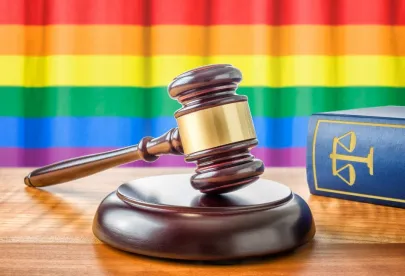In April 2012, the EEOC held for the first time in Macy v. Holder that transgender discrimination is sex discrimination and that Title VII sex discrimination prohibits discrimination of a job applicant based upon her status as a transgender woman. The opinion relied heavily on the US Supreme Court’s decision in Price Waterhouse v. Hopkins, 490 US 228 (1989), to affirm that Title VII prohibits discrimination “based on … sex,” which includes a prohibition on sex stereotyping in the workplace. The EEOC’s opinion made clear that Title VII sex discrimination inherently encompasses protection of transgender workers by stating that, “the term ‘gender’ encompasses not only a person’s biological and anatomical differences, but also the cultural and social aspects associated with the biological sex.” Thus, the discrimination faced by transgender employees is based upon a perceived non-conformance to traditional gender-based normative roles, and therefore stems from the same type of discrimination based on sex stereotyping (such as pregnancy, same sex harassment, and other sex stereotyping discrimination) long been prohibited by Price Waterhouse. Macy v. Holder is a landmark in the movement for transgender rights in the workplace. It did not declare transsexuals or transgendered persons to be a protected class, rather, discrimination against a transgendered person violates Title VII, because that person was discriminated against based on their sex. According to the EEOC, since 2000, many federal courts have used similar reasoning to affirm Title VII’s applicability to employment discrimination based on both gender identity and sexual orientation. As of September 2017, 19 states (California, Colorado, Connecticut, Delaware, Hawaii, Illinois, Iowa, Maine, Maryland, Massachusetts, Minnesota, Nevada, New Jersey, New Mexico, Oregon, Rhode Island, Vermont, Washington, the District of Columbia) and hundreds of municipalities have anti-discrimination laws and ordinances allowing transgender people to use public facilities that correspond to their gender identity.
Recently, additional court cases have expanded upon the holding in Macy. In Jameson v. US Postal Service, EEOC Appeal No. 0120130992, 2013 WL 2368729 (May 21, 2013), which held that intentional misuse of a transgender employee’s new name and pronoun could constitute either sex-based discrimination, harassment or both. In Complainant v. Dep’t of Veterans Affairs, EEOC Appeal No. 0120133123, 2014 WL 1653484 (Apr. 16, 2014), the court found that the employer’s failure to change its records pursuant to adjustments in gender identity was a valid Title VII sex discrimination claim.
In regard to the health care services that are provided to transgender individuals, an employer cannot deny, limit coverage, or impose additional cost sharing for sex-specific recommended preventive services due to an individual’s gender identity or recorded gender being different from one to which such health services are ordinary provided. Covered entities are also prohibited from categorically excluding coverage for those services related to gender transition. In Baker v. Aetna Life Ins., et al., 228 F. Supp. 3d 764 (N.D. Tex. 2017), the Court ruled in favor of an employee who brought a claim against her employer for sex discrimination in violation of Title VII based on the denial of coverage under the employer-provided health insurance plan for costs associated with surgery related to her gender transition procedures. It follows that covered entities in the private sector are those group health plans that accept federal funding from HHS (Health and Human Services), insurers that participate in marketplace/state exchanges or receive federal funding, and employers whose primary business is related to health care. The nondiscrimination provision of the Affordable Care Act is found in Section 1557 and it has been in effect since the enactment of the ACA. This provision prohibits discrimination on the basis of race, color, national origin, sex, age, or disability in health programs or activities that either receive Federal financial assistance or are administered by an Executive agency or any entity established under Title I of the ACA.
However, recent actions by the DOJ may contradict the holding in Macy v. Holder. On 10/4/17, the DOJ issued a new memo on transgender workplace rights giving their own interpretation of Title VII. Attorney General Jeff Sessions issued a memorandum stating, “Title VII’s prohibition on sex discrimination encompasses discrimination between men and women but does not encompass discrimination based on gender identity per se, including transgender status.” The Memorandum acknowledged that it was reversal of then Attorney General Eric Holder’s 2014 memorandum that interpreted Title VII as prohibiting discrimination on the basis of gender identity. When contacted, representatives from EEOC acknowledged receiving Sessions’ memorandum, but did not indicate whether it would affect any of its enforcement protocols. It is likely that gender identity will end in a possible showdown. Stay tuned for a summary of the 11th circuit case being petitioned for review at the Supreme Court.




 />i
/>i

